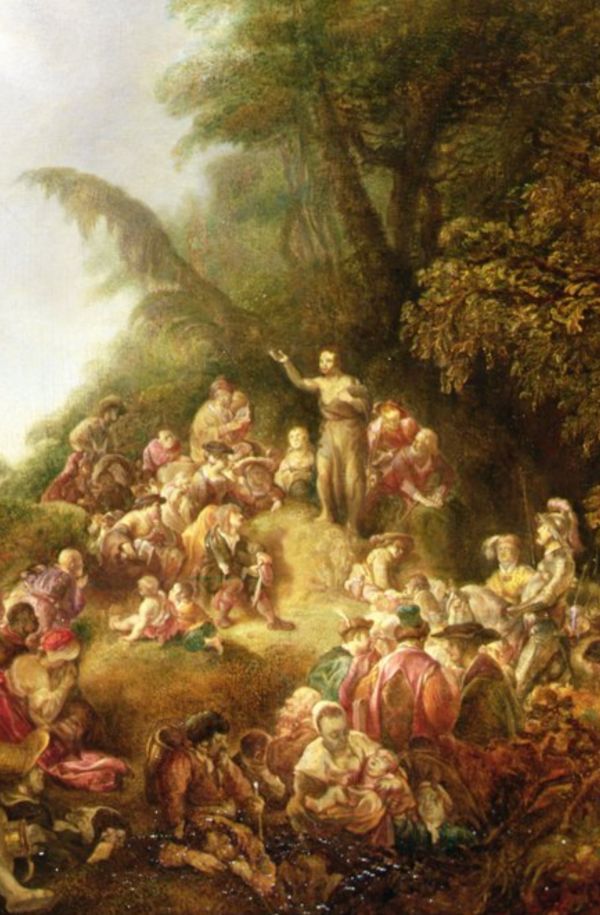'Gaudete in Domino' and what to do
(Zeph 3:14-18; Phil 4:4-7; Lk 3:10-18)
We wonder how to enter into the experience of Joy.
The tone of the book of Zephaniah is menacing until the vision reported in the first Reading. Its denunciation suddenly changes note.
The transformation of life has a Threshold of pure Faith.
This secret is revealed when we realise that God has lifted the sentence - and no punitive misfortune from above.
Once the woodworm of religion that seeks subjects to be punished is over, our improvements will be the fruit of the Father's patient result, renewing his Love (Zeph 3:17).
In key expressions, the sense of prophecy will be taken up by Lk in the Annunciation to Mary.
The incarnate Gift of Grace does not come like lightning, but pierces our condition of insignificance, even apprehension.
The Lord becomes Presence «in the midst» (vv. 15.17). The Hebrew expression reveals a God «in your innards», «in your womb».
The Eternal One does not show himself 'on high' to tower above. He does not stand 'in front', but 'within' - equidistant from all.
Likewise, his authentic apostles.
Person placed in such a vital environment evolves effortlessly; indeed, Joy flows through him and intoxicates.
The pyramid, on the other hand, turns us off.
When Paul writes to the Philippians he is in prison in Ephesus. Instead of cursing against misfortune he composes a letter punctuated with invitations to joy.
Why does he not feel like a failure?
He is certain that the Lord is the Source of his essence.
Same innate uniqueness from which the reality of the world and events emanate.
Our Core touches God; He is in the «bosom» of each one.
We therefore know that we can benefit from everything for even exponential growth, independent of luck.
And in the Calling by Name there is like a Vision, an intimate Image that directs the soul, and seeks more, and wants its place.
Life-changing dream.
In this way, the Vocation itself gradually introduces us into the experience of recovering the deep, unique, truly 'our' and divine character - where we can experience fullness of being.
But we «What shall we do?» (Lk 3:10.12.14).
John presents exemplary, topical situations.
None of them are about externals, about changing activities and professions, or following fashions - nor are they about the streamlining of devotional practice and the purification of worship!
On this Sunday, the Liturgy teaches that the healing of the world will be the result of simply coming together; the rest will arise spontaneously.
The life drive of 'nature' itself will take its course.
The first context of questions posed to the Baptizer sums up the other awkward situations.
He who has the courage of gratuitousness offers himself, and thus also makes others overcome everything.
It creates well-being, enthusiasm and wisdom even in those who suffer penury - or [in religion] fears of scruples.
‘Gaudete in Domino semper': we do not want to consign ourselves to a merely fairy-tale or à la page devotion, which loses ground because - if empty or trendy - it will be burnt as «straw» (v.17).
If God is Coming... let us ask ourselves what food and second tunic (v.10) we are able to share.
Gladness will emerge in the Gift that becomes Present.
[3rd Sunday in Advent (year C) Gaudete, December 15, 2024]












